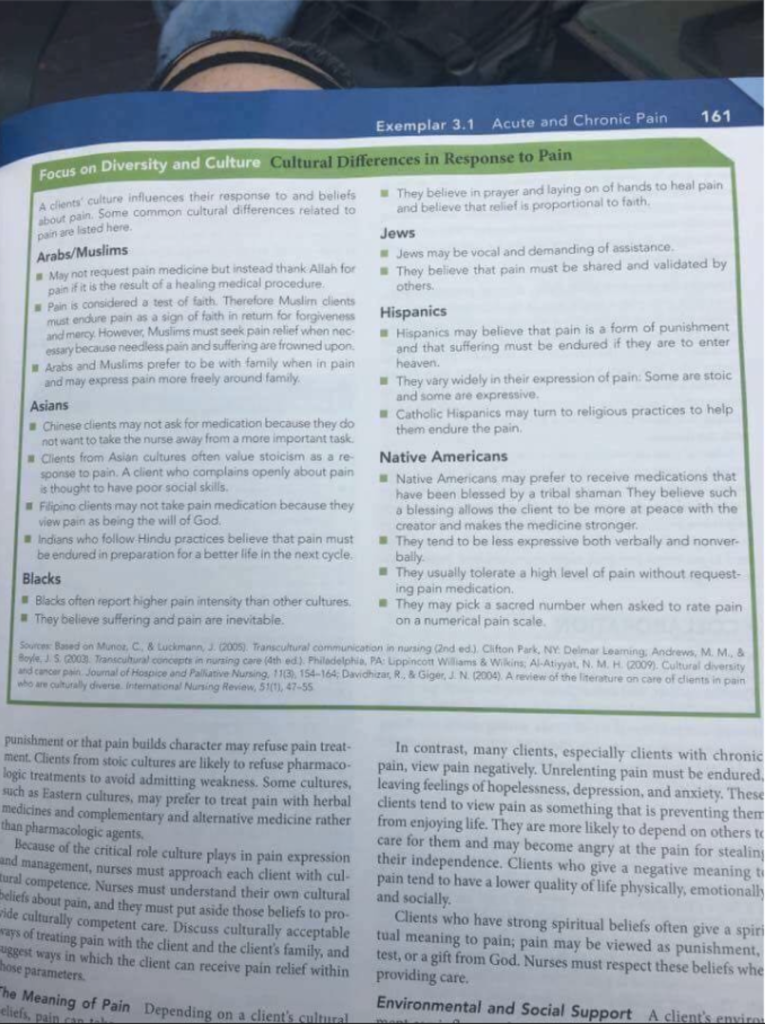 According to a recent study, African Americans are less likely to receive pain meds in the ER because many medical students associate race with pain tolerance. In other words, Blacks are believed to have thicker skin and therefore are routinely undertreated.
According to a recent study, African Americans are less likely to receive pain meds in the ER because many medical students associate race with pain tolerance. In other words, Blacks are believed to have thicker skin and therefore are routinely undertreated.
YOU MAY ALSO LIKE: Why Are Black Men With Prostate Cancer Getting Inferior Care
Per the University of Virginia (UVA) findings, published in the Proceedings of the National Academy of Sciences, White medical students and residents (a total of 222 participants) were quizzed to see how many believed inaccurate and at times "fantastical" differences between the two races. For example, that Blacks have less sensitive nerve endings, that their blood coagulates more quickly and that they age slower.
Believe it or not, half of those surveyed believed at least one of the “fantastical” statements to be “possibly, probably, or definitely true.”
There is even one nursing student who shared on facebook that in her textbook (yes, her textbook), showed how African Americans "preferred" pain (see picture below).

Following two separate mock medical cases: one involving a kidney stone, the other a leg fracture -- both of which were experienced by a White and an African American patient -- participants were asked to recommend treatment based on the level of pain (on a scale from 1-10) they alleged patients may be experiencing. According to the research, those who endorsed false beliefs were more likely to report lower pain ratings for the Black vs. the White patient.
Meanwhile, Kelly Hoffman, a UVA psychology doctoral candidate who led the research, said that many past studies have shown that Blacks are undertreated for pain because physicians assume they’ll abuse medications. Also surprising? According Hoffman, research revealed that only half of the residents knew that Whites are less susceptible to heart disease when compared to Black patients.
As for the significance of the study, it states, “The present work examines beliefs associated with racial bias in pain management, a critical health care domain with well-documented racial disparities. Specifically, this work reveals that a substantial number of White laypeople and medical students and residents hold false beliefs about biological differences between Blacks and Whites and demonstrates that these beliefs predict racial bias in pain perception and treatment recommendation accuracy.”
YOU MAY ALSO LIKE: Black Pain: Slavery & The Traumatic Roots of Modern Gynecology
“It also provides the first evidence that racial bias in pain perception is associated with racial bias in pain treatment recommendations. Taken together, this work provides evidence that false beliefs about biological differences between Blacks and Whites continue to shape the way we perceive and treat black people—they are associated with racial disparities in pain assessment and treatment recommendations,” the statement continues.
Of course, this is not the first study to discover racial bias when it comes to prescribing pain treatments. According to a 2000 study conducted by Emory University, a hospital emergency department in Atlanta prescribed pain killer to 74 percent of White patients with bone fractures, while only 50 percent of African American patients received the same treatment. Another paper last year found that Black children with appendicitis were less likely to receive pain medication for the illness.
To determine the accuracy of the UVA research, 10 experienced physicians were asked to do the same experiment as the medical school students and residents with the same medical cases and patients. Most of the physicians prescribed a narcotic for both patients.









